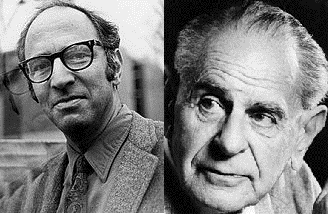Note: This post takes several of my threads (i.e. What is morality?, What is atheism?, What is theism?, What is religion?, One Moral Will, and the concept of meaning-memes) and shows that they are all deeply inter-related.
This was the final conclusion I was able to draw from my last post on Supernatural Morality:
Theists can rationally justify (though they do not prove) their belief in objective morality via their additional premises (i.e. the existence of an afterlife, with perfect knowledge, and inescapable consequences). Atheists cannot justify their belief in objective morality and are merely being rationally incoherent when they believe in (or act as if there is) objective morality despite all the evidence against it.
Now, of course, this is probably a hollow victory if there is in fact no God. If there is no God, does it really matter that morality is a delusion? This is a thought for a future post. But the question does point out one thing: there is some sort of link or connection between belief in God and belief in Morality. At a minimum, that connection is the rational coherence of morality as stated in the quote above. (Making here some possible allowances for an “atheist” that receive answers to prayers or believe in heaven.)
I now want to explore the relationship between belief in God and belief in Morality further, for there is clearly some sort of link there that few speak enough of. Continue reading →
 Before I disappeared from blogging, I had finished up reposting my Wheat and Tares posts on epistemology (i.e. theory of how we gain knowledge. Good summary of my posts found here. Full series found here, in reverse order of course.) But the truth is that throughout my series, I never really had a single post that attempted to explain what epistemology really is.
Before I disappeared from blogging, I had finished up reposting my Wheat and Tares posts on epistemology (i.e. theory of how we gain knowledge. Good summary of my posts found here. Full series found here, in reverse order of course.) But the truth is that throughout my series, I never really had a single post that attempted to explain what epistemology really is.

